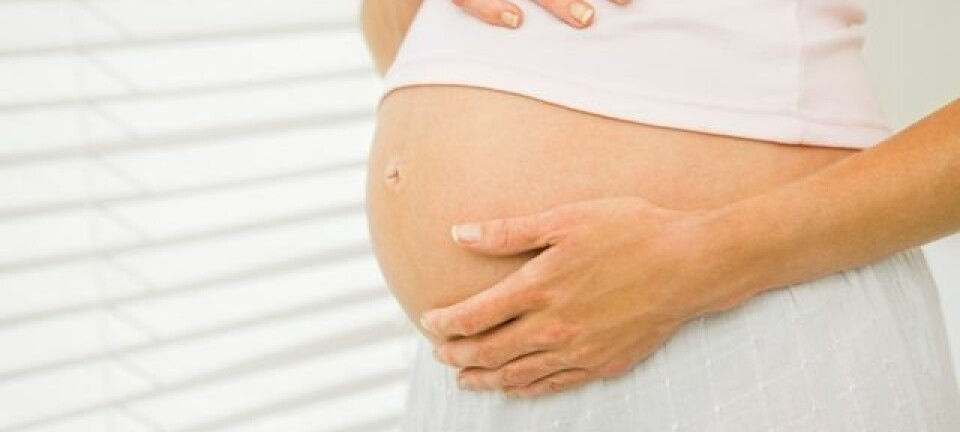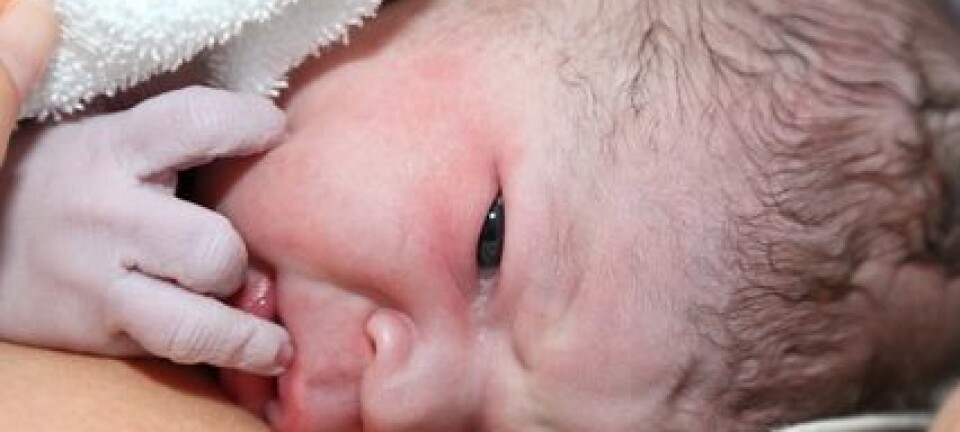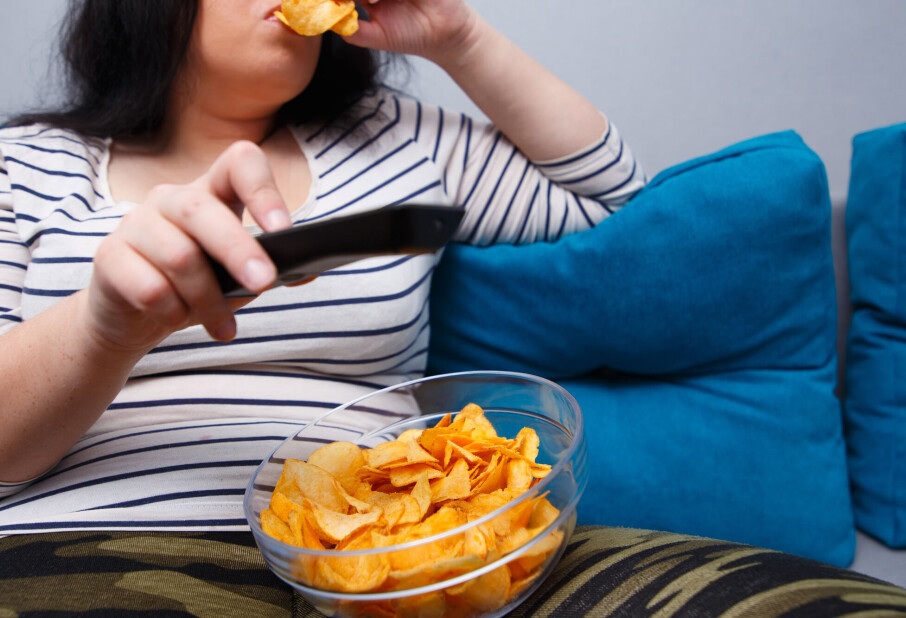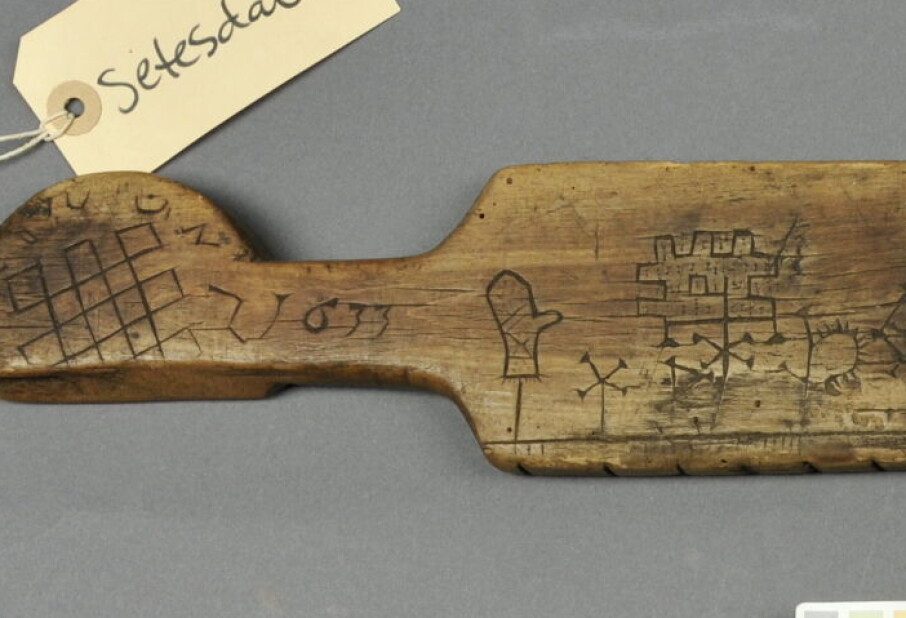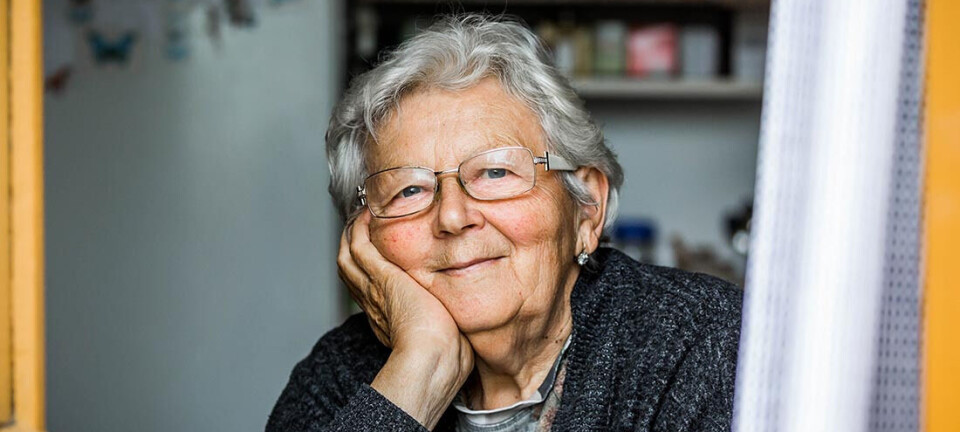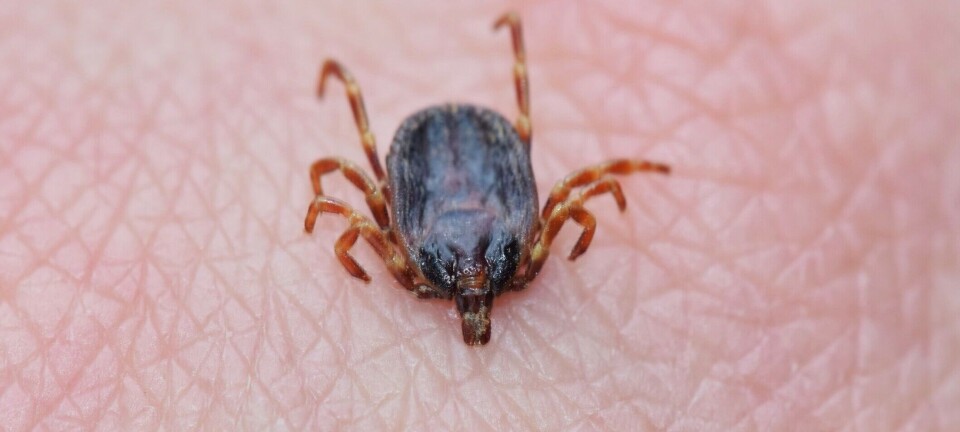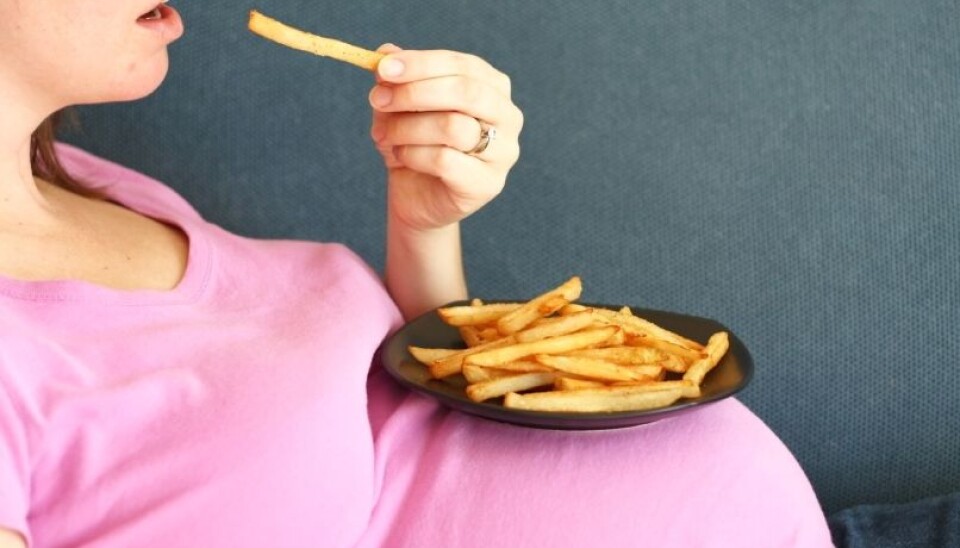
Greens and whole grains fight premature births
A daily diet of whole grain foods, fruits, vegetables and fish can lower the risk of premature birth – even if a little bit of unhealthy food is added to the mix.
Denne artikkelen er over ti år gammel og kan inneholde utdatert informasjon.
Pregnant women notoriously have food cravings, which can include unhealthy snacks such as chocolate, cake or potato chips.
But a new study authored by Norwegian and Swedish researchers and published in The British Medical Journal shows that occasionally indulging in these "bad" foods is not a problem, at least when it comes to preterm births.
A preterm birth is defined as occuring before week 37 of pregnancy, and can be detrimental to the child's health both over the short and long term.
It has been known for some time that smoking and obesity affect the risk of preterm birth, but there are other factors involved as well.

Although the mother's diet is essential for fetal growth and development, there has been little research on the relationship of diet to birth outcomes.
Diet is important
Researchers from Sahlgrenska Academy at the University of Gothenburg and from the Norwegian Institute of Public Health have now examined this question.
They have conducted a new study of 66,000 pregnant women who participated in the Norwegian Mother and Child-Study. The main finding is that diet can influence the risk of preterm births.
The researchers have not investigated particular food types, but they show that the pattern of diet is important.
“Pregnant women are typically highly motivated to follow a healthy diet. But it is not essential to cut all unhealthy foods in order to reduce the risk of preterm birth,” senior researcher Annelise Brantsæter explains.
“It is more important to eat more whole grain products, and fruits and vegetables rather than to avoid items like chocolate and chips,” she says.
Brantsæter studies nutrition at the Norwegian Institute of Public Health, and is a co-author of the new study.
Common sense
The women with the highest risk of giving birth before week 37 of pregnancy rarely ate vegetables, fruits, whole grain products, nuts and vegetable oils.
If you eat enough healthy food, it does not matter if you also have a couple of slices of pizza or pieces of chocolate in your diet, at least when it comes to the risk of preterm birth.
“A lot of it is just common sense: You need to have some balance in your diet. Obviously, you can't eat anything you want, but you don't need to avoid all unhealthy foods,” Brantsæter says.
“Pregnant women should eat lots of fruits, berries and vegetables, and choose whole grain products when they eat bread, rice and pasta. They should also eat fish and lean meat,” she adds.
Not enough fish, or fruits and vegetables
Another study, based on data from the same 66,000 women, was published in January. It shows that:
One in three consumed the recommended amount of fruit (at least 300 grams per day).
One in ten consumed the recommended amount of vegetables (at least 300-400 grams per day).
One of five consumed the recommended amount of fish (between 300 and 450 grams per week).
It is not clear why a particular diet tends to lower the risk of preterm births. It could be linked to anti-inflammatory substances in fruits and vegetables or to a healthier intestinal flora. But nobody knows for sure.
The researchers do not know if this diet also prevents very early or moderately early births. The link they have discovered was true for births in week 34 to 37, and also for preterm births in women for whom the pregancy was their first. In these situations, the risk was reduced by about 15 percent.
Brantsæter stresses that the study is observational, which means that the scientists cannot be sure that there is a causal relationship between diet and risk of preterm birth.
The three nutrition patterns
The women in the new study answered questions about lifestyle, disease and health in early pregnancy and their diet when they were about halfway through the pregnancy.
The researchers conducted an analysis that takes into account what foods we often eat together. On this basis, they worked out three nutrition patterns: whole grains and green, Western and traditional Norwegian.
The whole grains and green pattern consisted of lots of green vegetables, fruits, berries, mushrooms, nuts, wholemeal bread, vegetable oil, chicken and water to drink. Pregnant women in this group rarely ate white bread, pizza or sausages.
The traditional Norwegian diet consists of a lot of boiled potatoes and vegetables, fish, often lean variants such as cod and pollock (saithe), sauce and porridge, but not much pizza and chicken.
Women who adhered to the so-called Western diet consumed more chocolate, potato chips, white bread, cakes and sugary sodas than women in the other two groups, said Brantsæter.
------------------------------------
Read the Norwegian version of this article at forskning.no
Translated by: Lars Nygaard
Scientific links
- Maternal dietary patterns and preterm delivery - results from large prospective cohort study. British Medical Journal, Februar 2014.
- Adherence of pregnant women to Nordic dietary guidelines in relation to postpartum weight retention: results from the Norwegian Mother and Child Cohort Study. BMC Public Health. Januar 2014.









